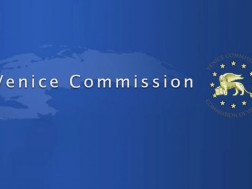The Venice Commission has published on Tuesday two new opinions on Georgia adopted at the latest plenary session: the Opinion on amendments to the Election Code abolishing gender quotas and the Follow-up opinion to the December 2023 joint opinion by the Venice Commission and the OSCE/ODIHR on the draft amendments to the Election Code and the Rules of Procedure of the Parliament.
Regarding amendments to the Election Code of Georgia abolishing gender quotas, the Venice Commission stresses that international standards recognise positive obligations of the State to ensure gender equality – as did the Constitutional Court of Georgia in a judgment of 2020, in which it confirmed the constitutionality of the temporary gender quotas as far as their applicability to women was concerned. The 2020 amendments introducing gender quotas for candidate lists in parliamentary and local elections as well as the financial incentives for political parties were in line with previous recommendations of the Venice Commission, but they have now been abolished without being replaced by any other measures aimed at facilitating the election of women candidates. While each country can decide how to improve gender equality in democratic institutions, including the Parliament, it has been demonstrated that gender quotas can influence women’s parliamentary representation, and they are not contrary to the principle of equal suffrage if they have a constitutional basis, as in Georgia. The Venice Commission thus recommends taking special temporary measures to improve women’s representation in Parliament and in local councils (Sakrebulos), such as the re-introduction of gender quotas or other recognised methods for facilitating the election of women candidates, so that current percentages of women who are elected are increased substantially.
In addition, the Venice Commission is highly concerned that the amendments have been adopted in an accelerated procedure, without prior public consultations, and without considering concerns raised by the President of Georgia, the Public Defender of Georgia, several representatives of the opposition and of the civil society, and by international organisations. Moreover, the amendments relating to political parties’ candidate lists are relevant for the outcome of elections, and their adoption much less than one year before the next parliamentary elections – scheduled for October 2024 – gives rise to serious concerns regarding stability of electoral law.
As for the follow-up opinion concerning the draft amendments to the Election Code and the Rules of Procedure of the Parliament, the Venice Commission is highly concerned that none of its recommendations has been taken on board by the Georgian authorities, not even partly. The Commission stresses once again that the – now adopted – amendments are clearly insufficient to ensure a consensus-based political process which is crucial for the independence and impartiality of the Central Election Commission (CEC) and for public trust in this institution. One of the major concerns is related to the new anti-deadlock mechanism for filling vacant positions, which provides for the possibility of two additional rounds of voting under which the candidates can be elected by simple majority, and which bears the risk that the ruling party alone can elect the (non-partisan) CEC members and Chairperson.
Moreover, it is worrying that the amendments of such fundamental elements of the electoral law have been adopted less than one year before the next parliamentary elections due to be held in October 2024, contrary to the principle of stability of electoral law. In the initial Opinion, the Venice Commission had stressed that a derogation from the one-year advance adoption in respect of the next elections would only be justified under the condition of compliance with the key recommendations issued in that Opinion, together with a broader support including by the opposition. These two conditions have, however, not been fulfilled in the subsequent adoption process.
It is worrying that several important previous recommendations have still not been addressed and that elections will again been held on the basis of a legal framework which is still affected by a number of shortcomings. The Venice Commission concludes by reiterating its recommendations of the initial Opinion, including the overall call for a more comprehensive reform – instead of frequent, limited changes – that meets international obligations and standards and addresses prior recommendations, and which is built on broad consensus after extensive public consultations with all relevant stakeholders. The Venice Commission also reiterates its final statements in the initial Opinion: as Georgia works to further its application for membership to the European Union, the Commission encourages the authorities “to use this as an impetus to further enhance the democratic process”.























